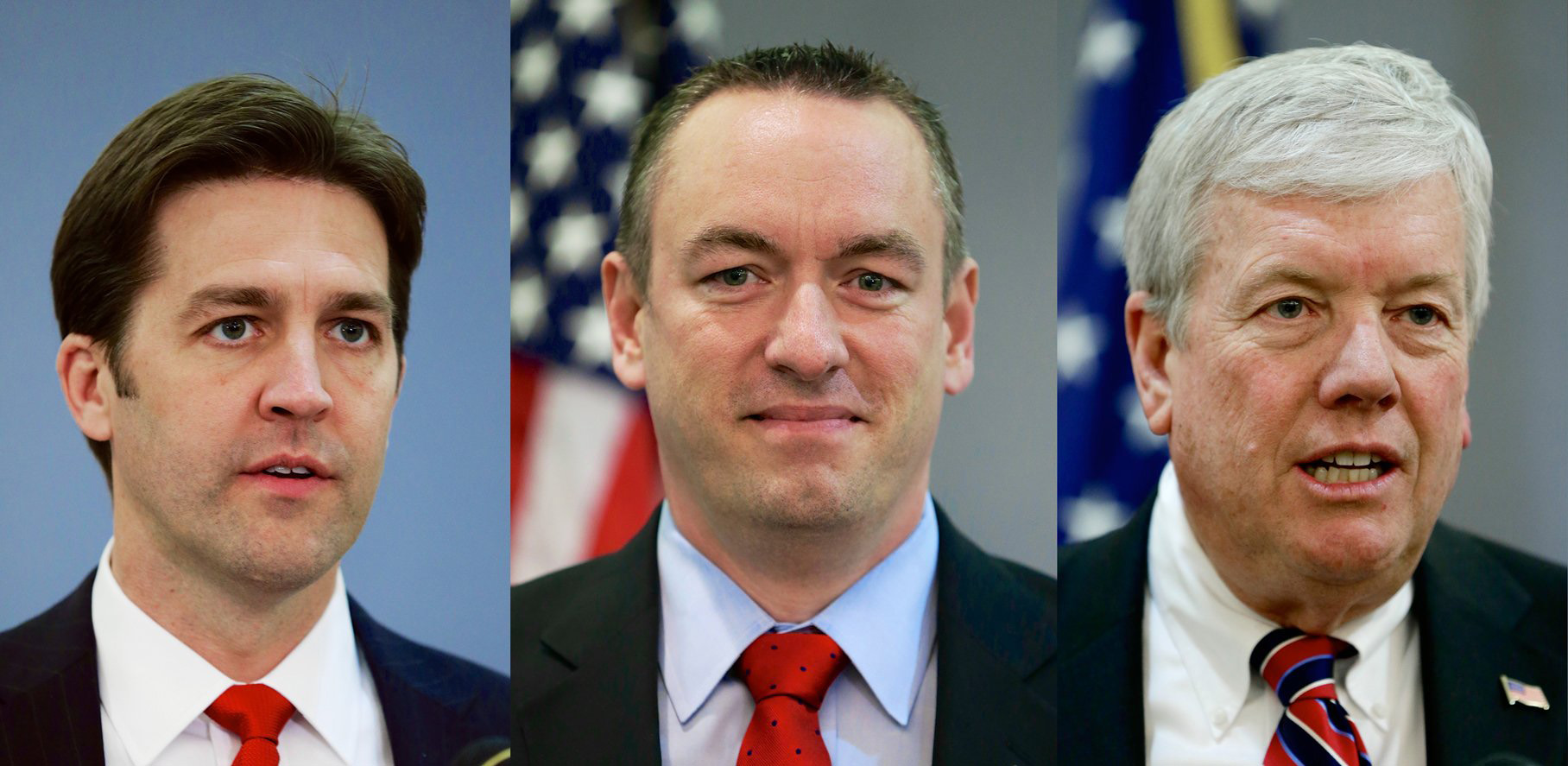
The most interesting Republican primary of 2014 culminates Tuesday night in tiny Nebraska, where three candidates have a shot at winning a race that upends every tidy narrative about the party’s divisions.
Until recently, the contest to succeed retiring GOP Sen. Mike Johanns seemed like a two-man race between Ben Sasse and Shane Osborn. Sasse was cast as the Tea Party candidate after winning endorsements from a raft of national conservative groups and major elected officials. Osborn, a former Navy pilot and state treasurer, has support from influential party figures linked to Senate Minority Leader Mitch McConnell. As a result, the race has often been framed as a battle between the party’s Tea Party and establishment factions.
The reality is more complicated.
Tea Party groups are desperate for a Sasse victory. The movement’s chosen candidates are struggling to gain traction in a spate of high-profile races this year, and the youthful president of Nebraska’s Midland University might be the best chance for national groups like the Senate Conservatives Fund to score a win. But this is not your typical proxy fight between the GOP’s grassroots and grandees.
Some Nebraska conservatives actually prefer Osborn. Many of the same establishment strategists vying to squash Tea Party candidates elsewhere love Sasse. And while Sasse has worn the Tea Party mantle and cut soft ads emphasizing his Nebraska roots, his resume includes a stint in the Bush Administration and posts at Yale, Oxford and McKinsey. The national support for Sasse’s candidacy actually seems to have made Nebraskans suspicious. “That does rile a few people,” Faron Hines, an activist with the York County Tea Party, told TIME recently, after the conservative group FreedomWorks revoked its endorsement for Osborn and gave it to Sasse. “Who is he going to represent when he gets to Washington?”
Enter Sid Dinsdale. The snowy-haired president of a local bank has lagged behind Sasse and Osborn for months. But as the frontrunners trained their fire on each other, Dinsdale quietly consolidated support. Polls suggest a late surge. National groups like the Club for Growth were concerned enough to go up on air with ads blasting Dinsdale, suggesting that Sasse—one of the few candidates this year who bridges the party’s internal divides—could lose.
For proof that such an upset is possible, one need only look to the state’s junior Republican senator. In 2012, Deb Fischer pulled off an upset victory in a crowded Republican primary, coming from behind in the race’s final weeks in a race against two well-funded statewide officials. As the better-known frontrunners battered one another, Fischer slipped between them and sprinted to victory.
Dinsdale has tried to replicate that path. While he may lack Fischer’s folksy appeal to the state’s conservative base, he was able to pump $1 million of his own fortune into the race, enough to fund plenty of TV ads in a state with cheap media markets and less than two million people. The banker also drew a coveted endorsement from the Omaha World-Herald. “As Nebraska as they come,” the paper declared, in a pointed jab at the out-of-state money and muscle marshaled by his opponents.
All these swirling factors portend an exciting finish for one of the year’s best primary contests.
More Must-Reads from TIME
- Donald Trump Is TIME's 2024 Person of the Year
- Why We Chose Trump as Person of the Year
- Is Intermittent Fasting Good or Bad for You?
- The 100 Must-Read Books of 2024
- The 20 Best Christmas TV Episodes
- Column: If Optimism Feels Ridiculous Now, Try Hope
- The Future of Climate Action Is Trade Policy
- Merle Bombardieri Is Helping People Make the Baby Decision
Write to Alex Altman at alex_altman@timemagazine.com